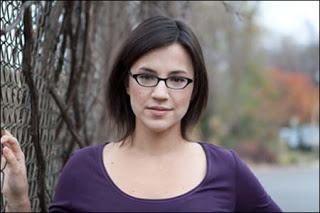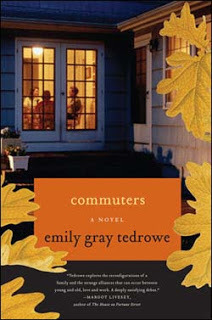Emily Gray Tedrowe, author of Commuters, talks about writing and dreams


Emily Gray Tedrowe wrote a really knockout novel: Commuters. A Target Breakout Pick, An Indie Next Pick and an Entertainment Weekly "Best New Paperback," this is an assured debut about marriage, money and home, and it is also very much a book about what we yearn for and dream about--and why. I asked Emily if she'd write something for the blog, and I'm so thrilled that she did. Thank you so much, Emily.
One night earlier this year, as I was closing in on a full draft of my second novel, I dreamed that I showed the manuscript to the characters in the novel. As in most dreams, this had the sense of perfect plausibility. In the dream, I received praise and feedback from my characters with a polite but privately skeptical attitude I'm afraid I take on for real-world critiques. . . and was shocked when one character broke away to denounce the novel entirely. Awake, I turned the dream over and over, trying to find a key to help the actual writing of my book which was in full-steam, light-at-the-end-of-the-tunnel mode. Friends and fellow writers were amused by my dream about the dissatisfied character: kill him off, they advised. Rethink giving him a weight problem. Eventually I decided that the medium was the message—I cared so deeply about these people (characters) and was so caught up in their story, that I couldn't leave them even while unconscious. A good sign. But I've often wondered before this about the relevance of dreams to my writing life. Fortunately or not, depending on how you look at it, I usually remember my dreams each night. I write them in my journal, tell them to my therapist, bore my husband with them. But what can one's dreams mean to a writer? Aside from the fun of psychoanalyzing yourself, why pay attention? A few thoughts:· Dreams reveal your imagination. Freud famously compared the way dreams work to the structure of poetry, with condensing, metaphor, and substitution as key elements. I like to extend this to fiction, and play with the notion of my dreams as mini-fictional engines. I think about them in terms of mood, point of view, conflict, dialogue. Writers in the flow of creating often experience their work as if it arrives without conscious effort; by eavesdropping on my dreams, I try to catch my imagination unawares and learn more about what it's got going on.· Give a dream to a character? So far I've only done it once, in a short-short story I built entirely around a favorite dream about a hungry ghost. There's a fiction-workshop truism that for every dream you lose a hundred readers. You're warned off at all costs, and sure, we can guess why—too-obvious reveals, banal stand-ins for character development, etc etc. But I must admit that any time a conventional-wisdom "rule" comes my way I immediately want to break it. If you've got the chops, it's not your rule. · Dreams remind you to honor what's unexpected. I once read Ann Beattie urging writers to open up their scenes to sudden swerves; the example she gave is a scene in which a couple is arguing—what if a bird flew inside through their open window? Dreams also return us to the beauty of what startles. So even if I don't write about that dream where my yoga teacher suddenly produces a giant foam cheese slice for the class to practice savasana underneath—true dream—it might jar my work open to the power of the unexpected, the funny, the messy ways of life.
Published on June 20, 2011 17:07
No comments have been added yet.



